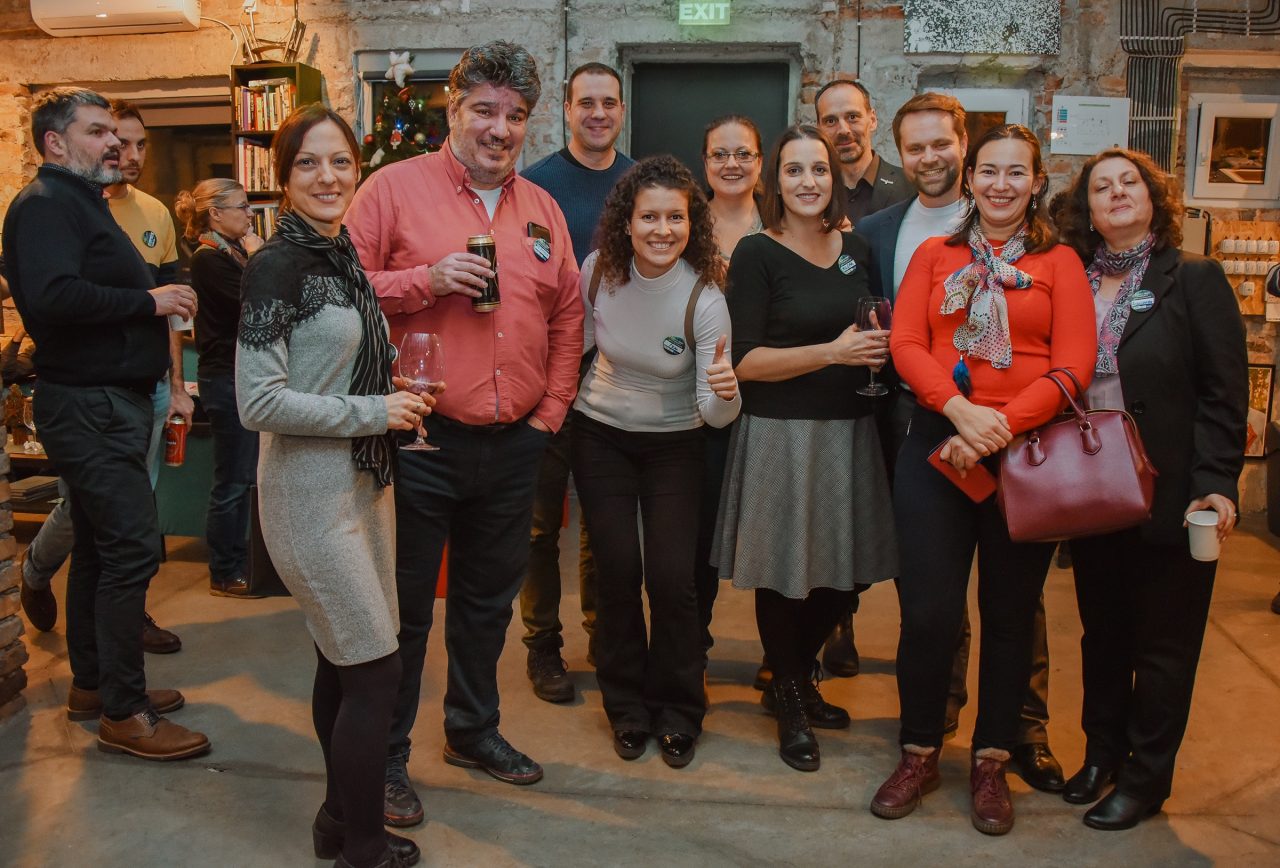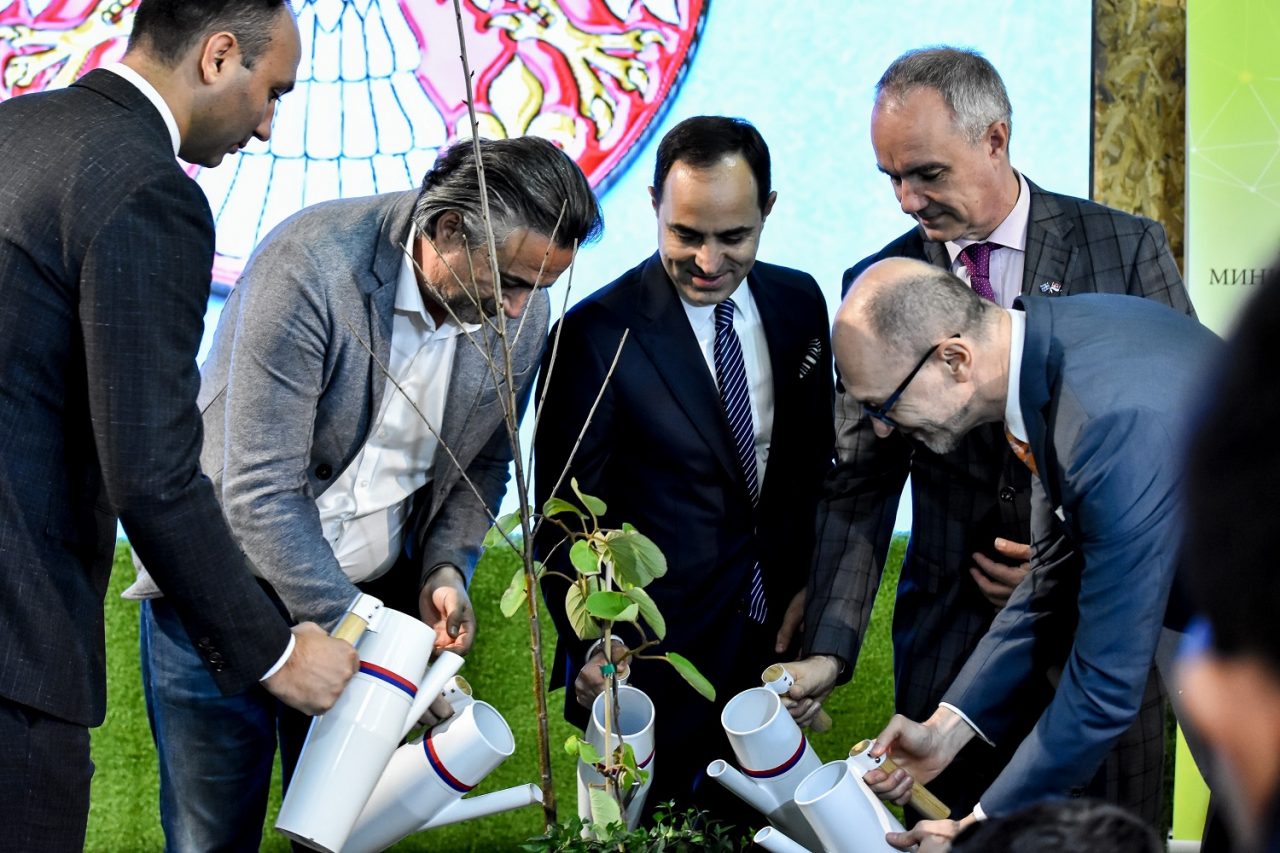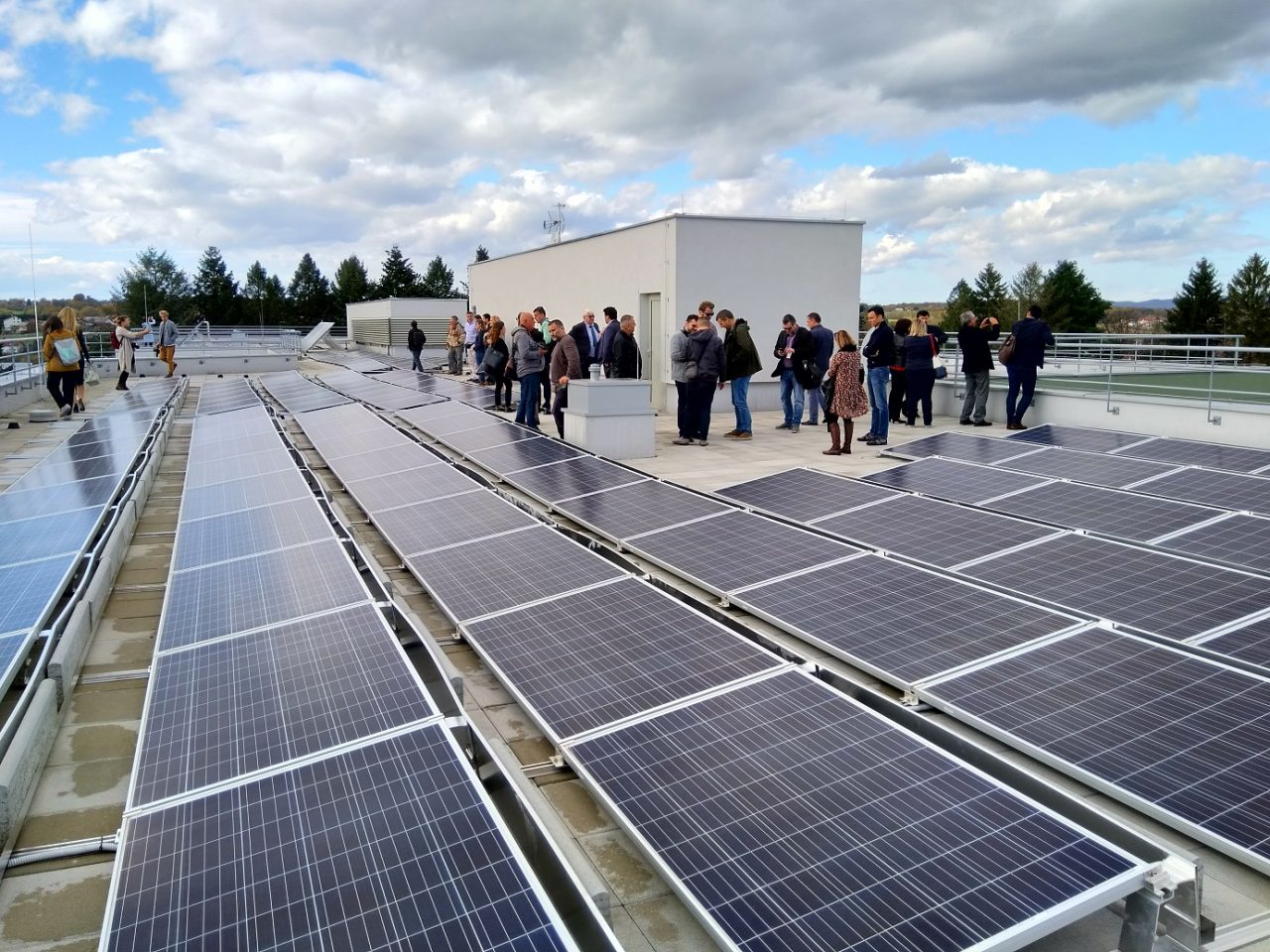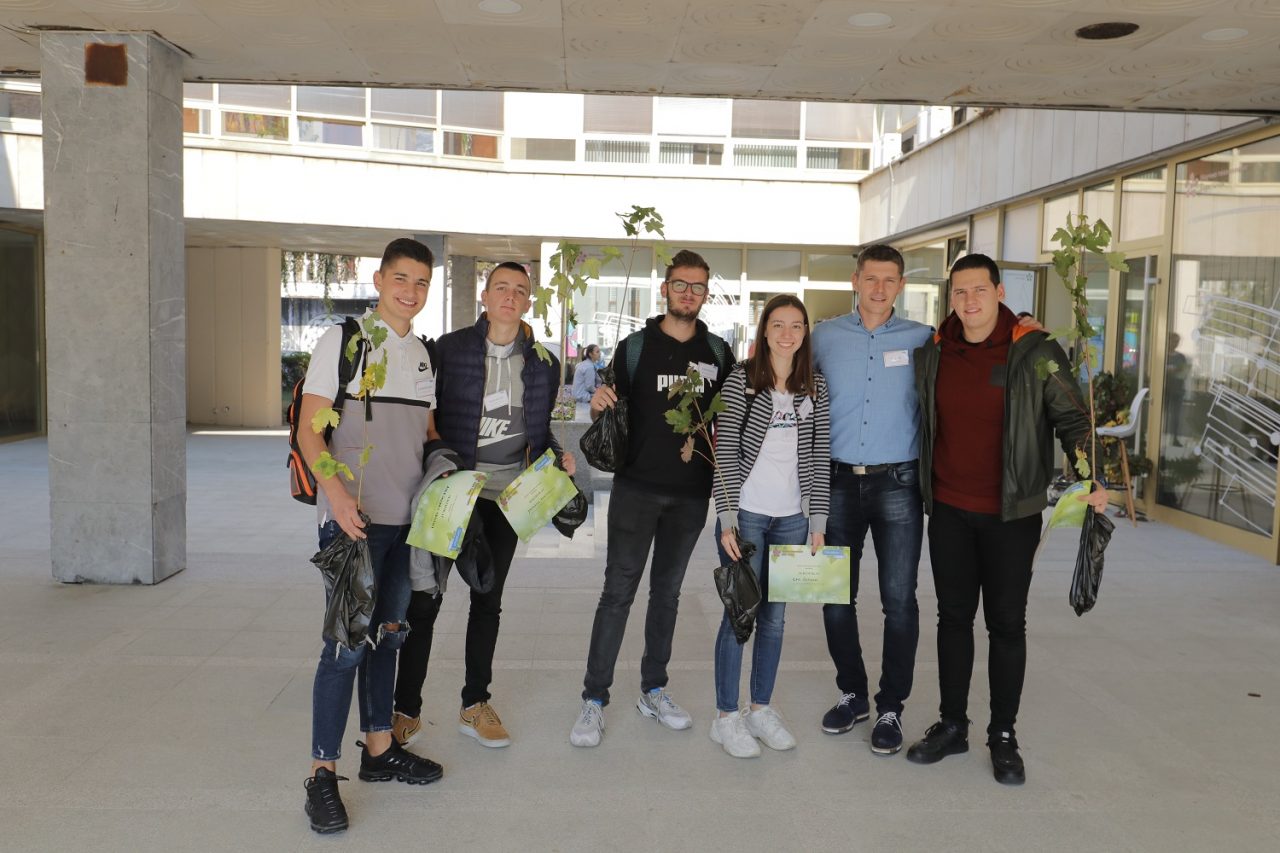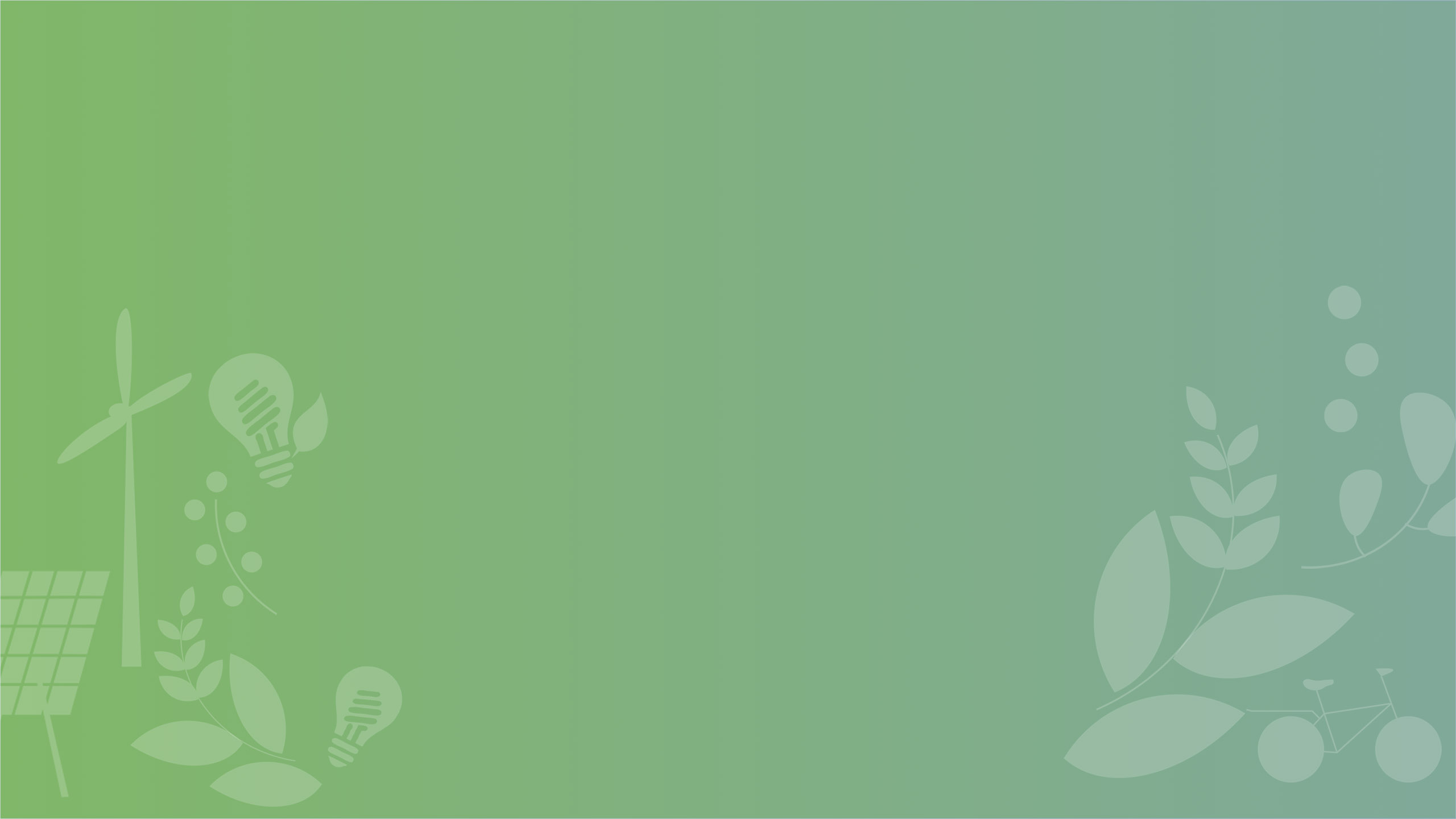-
Jan 28 2020 Open call for participation in Summer School on Climate Action “Jorney 2020”
Applications for participation in the four-week Summer School on Climate Action, Innovation, System Transformation and Building a Community Committed to Combating Climate Change, EIT Climate-KIC “Journey 2020” are open until Monday, February 17, 2020.
The program is open for students, graduates, future MBAs, masters and PhD. Participants will stay in three locations in Europe, divided into five groups, from 28 June to 25 July, or from 2 to 20 August. They will have the opportunity to work in an international and multidisciplinary team to develop their ideas, projects, products or services with the support of experienced mentors.
Participation in the program is free. More information you can find on https://journey.climate-kic.org/contact-us-faqs. To apply you must fill out an online application form on https://journey.climate-kic.org
The school has been organized by the EIT Climate-KIC in cooperation with universities and other organizations since 2010, and so far, has involved more than 3000 graduates who have come up with around 400 project and business ideas. The Chamber of Commerce and Industry of Serbia has been implementing the EIT Climate-KIC programs: Accelerator, Pioneers into Practice, Climate Launchpad and Journey since 2016.
-
Dec 19 2019 The Annual Gathering of Climate Change Practitioners was held in Belgrade
More than 80 professionals from various fields in climate change gathered on Friday, December 13th for the annual networking meeting in MARSH Open Space in Belgrade, to present the results achieved on projects in 2019 and announce activities for next year.
– This is the third year that we are organizing such an event in cooperation with the United Nations Development Programme (UNDP), which is important for bringing people together from different programs to discuss, share experiences and plan future projects together. We all work in the same field and our goal is to fight climate change – said Advisor for Circular Economy at the Chamber of Commerce and Industry of Serbia Isabel Arias.
She introduced Climate-KIC, explaining it is the EU largest partnership organization that is supporting innovation that helps tackle climate change to achieve net-zero greenhouse gas (GHG) emissions. According to Arias, the strength of the organization lies in the huge network they have all over Europe in various areas, such as finance, cities, materials and land use, and they will begin to work in the topic of water. Partner organizations are companies, universities, chambers of commerce.
Ana Seke, „Climate Smart Urban Development Challenge“ Project Coordinator at UNDP Serbia, presented the realized activities, including public calls for innovative ideas and solutions, as well as the open data challenge.
– We chose the best ones, they won awards and went into a climate incubator. We awarded five projects and provided them with co-financing and implementation. Another 15 projects are participating in the climate accelerator and at the beginning of next year, we will select three more that will receive funding for implementation. In February 2020, we are expecting the new challenge call related to innovative solutions for biodegradable waste, which we will implement together with the Swedish International Development Cooperation Agency (SIDA) – said Seke.
She announced that platform for crowdfunding will be operative next year, and two campaigns of donation type crowdfunding are forthcoming for kindergarten in Kragujevac, as well as investment type crowdfunding for two solar power plants in Sabac. Project also supported the founding of the First energy cooperative in Sabac.
CleanTech Hub Manager at Startit Nemanja Milovic presented Inno Energy in Serbia that has programs for master’s degree students at major European universities, as well as other innovative programs that finance innovation projects in the field of climate change.
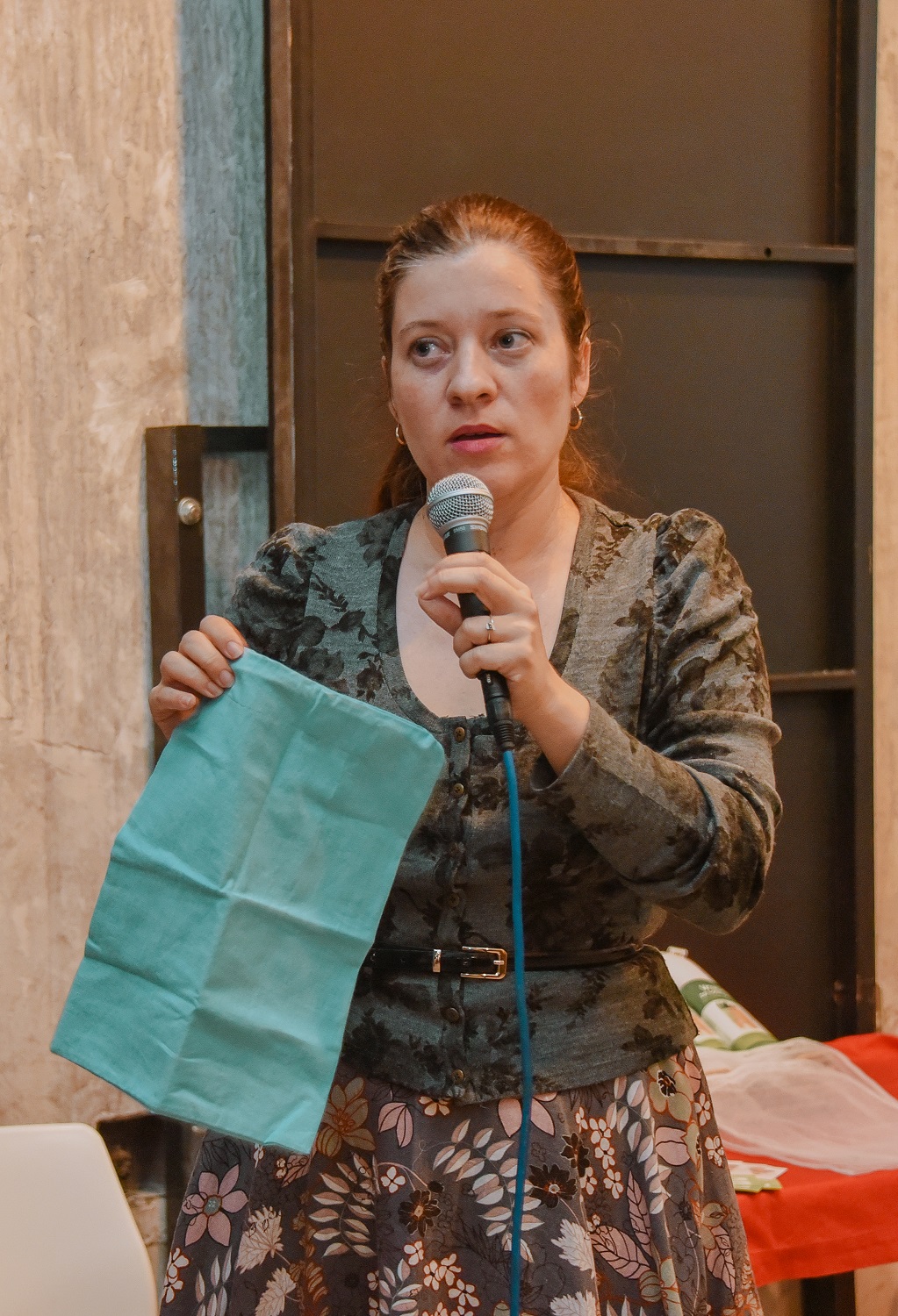
Presenting the principles of the zero waste movement and the circular economy, the administrator of the Facebook group “Zero & Low Waste Serbia” Milja Vukovic explained that she lives without waste for two years and that the time we are living in requires creative moves because species are being driven to extinction.
– There is clear data that says we are living in a special time and our oceans have several continents of floating plastic. Plastic in the natural environment is not neutral, its further effect is not zero. The plastic slowly decomposes, releases carbon dioxide and returns to the ecosystem through the animals that eat it – explained Vukovic, adding that the information influenced her to stop producing garbage and start communicating to others to do the same.
The participants of the networking meeting had the opportunity to attend an exhibition of some of the local products and creative solutions that replace plastic in everyday use, but also support the principles of the circular economy.

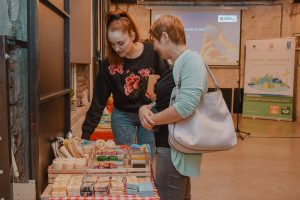
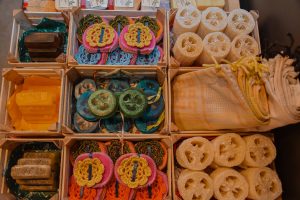
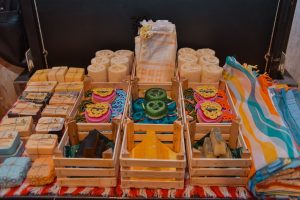
-
Nov 28 2019 This year in Serbia 300 kilometers of trucks full of special waste streams were recycled
New Law on Waste management soon will be adopted in Serbia, which will contribute to the sustainable development goals and enable to transfer part of the competence in this area the republic level to local self-governments, including the decision to ban plastic bags, announced the Minister of Environmental Protection Goran Trivan during event that mark The European Week for Waste Reduction on November 22 at the Museum of Science and Technology in Belgrade.
– The Waste Management Strategy has also been redefined and it is providing that we have 27 regional waste collection centres. We expect a series of changes that will show progress and when we make all the sites available, then the system of waste collection, treatment and reuse will come to life – Trivan said, adding that the Ministry has invested over 400 million dinars in the rehabilitation of non-sanitary landfills.
He pointed to the shortcomings of the existing Law, which does not provide a deposit system for packaging waste management.
– For the end of this year, we are preparing a document that will regulate the process of packaging waste treatment, which means that we will apply the experiences of countries that had great and good results and raise our goals to the level of EU targets – Trivan said.
According to the president of the Association of Recyclers of Serbia Vladimir Živaljević, since 2010. until today 600,000 tons of special waste streams have been processed in Serbia.
– This year, 100,000 tonnes or 100 million kilograms of special waste streams were processed. That’s 300 kilometres of trucks full of such a waste. It is easy to imagine how this has been around us for years – Živaljević said.
As he explained, waste oils are the big problem because is not known where they end up after use.
– There are 50 million litres of such waste oil in Serbia, for which is not known where it ends up, it is used in combustion plants and as a fuel in cars, so we have aerial pollution and carcinogens in nature. The solution is the „polluter pays“ principle. According to that principle, the polluter should pay for the rehabilitation of the polluted environment. This principle has shown results in the last few years and it provides significant stimulus for further progress in this area and according to the capacity, 20 to 30 per cent more waste could be processed than the current result – Živaljević explained and added that less than 2,500 companies have permits for some type of storage, transportation and waste treatment.
– We have 20 large operators, there are currently 1,000 workers in the industry and more than 15,000 workers in various companies that are subcontractors of these operators – Živaljević said.
Ambassador of the Kingdom of Sweden to Serbia Jan Lundin welcomed the great efforts of numerous municipalities in Serbia to reduce waste and recalled the numerous projects implemented by the Embassy in cooperation with the Republic of Serbia, in particular, the project with 17 municipalities in Serbia that have primary waste separation.
Ambassador of the Republic of Turkey Tanju Bilgic recalled the initiative launched in cooperation with the Ministry of Environmental Protection launched in Serbia „Zero Waste“.
The European Week for Waste Reduction is an international initiative that supports actions every year across Europe for one week, aiming to promote waste reduction and to raise public awareness of waste as a resource.
-
Nov 28 2019 The First Energy Cooperative In Serbia „Sunny Roofs“ Was Founded In Šabac
The first energy cooperative in Serbia „Solar Roofs“ was founded by the citizens in Šabac on November 6th. Public Utility Company for production and distribution of thermal energy “Toplana-Šabac”, Green Energy Cooperative (ZEZ) from Zagreb and United Nations Development Programme (UNDP) in Serbia within the project “Climate Smart Urban Development Challenge” helped to establish energy cooperative.
According to the director of PUC “Toplana-Šabac” Slobodan Jerotić, similar cooperatives already exist in the countries of the European Union and the first cooperative in Serbia is open to all who are interested, regardless of the place they live.
– The initiative came from a desire to show that it is possible to bring together people of similar interests around a good idea. The main goal is to implement a project that offers an alternative solution for municipal energy supply. By using renewable energy sources, in this case, solar energy, it is possible to reduce the use of fossil fuels, heating and electricity costs, but also significantly contribute to the reduction of greenhouse gas emissions – says Jerotić.
The cooperative will soon launch an investment crowdfunding campaign for the first project, the installation of a 16.5 kilowatt solar photovoltaic power plant on the roof of the PUC “Toplana-Šabac” administrative building. The investment is estimated at 15,000 euros. Techno-economic analysis and preliminary design have been completed. An application for a construction permit has been submitted through a unified procedure under the Law on Planning and Construction.
The director of “Toplane-Šabac” announces that the first kilowatt-hours of electricity could be produced in the first quarter of 2020. The energy produced from photovoltaic power plants, installed on the roofs of private homes and public buildings, generates revenue from the sale to energy entities engaged in electricity trading or savings if used for their own needs.
We would like to hear your opinion as well. You can fill in the questionnaire (available only in the Serbian Language) about your interest to invest in the construction of a solar power plant in Šabac on the link https://eesrbija.rs/upitnik/.
-
Nov 08 2019 Smart Bag and Green Reading Room won at Climathons in Subotica and Čačak
Global climate event, dedicated to addressing the climate challenges, was held in Subotica and Čačak on 25th and 26th October.
Within 24 hours six teams from Subotica, four from high schools and the other two from an IT company and an environmental civil society organization, came up with solutions to improve the waste management system in the city. The best innovation idea – Smart Bag – was devised by a group of students from the High School “Svetozar Marković” and the School of Economics “Bosa Milićević”. Their idea is to make a cotton bag with multifunctional benefits for consumers, as an incentive for people to carry their bags from home and abandon the use of plastic bags.
– We wanted to combine two challenges, textile and plastic waste. We did this by making our own bags out of used cotton and textiles, so that fabrics are not thrown away as waste. If our bag gets torn, it can be easily replaced with a new bag, so that the material circulates constantly. That would reduce waste and the use of plastic bags – explained Anđelka Matković from the first-ranked team.
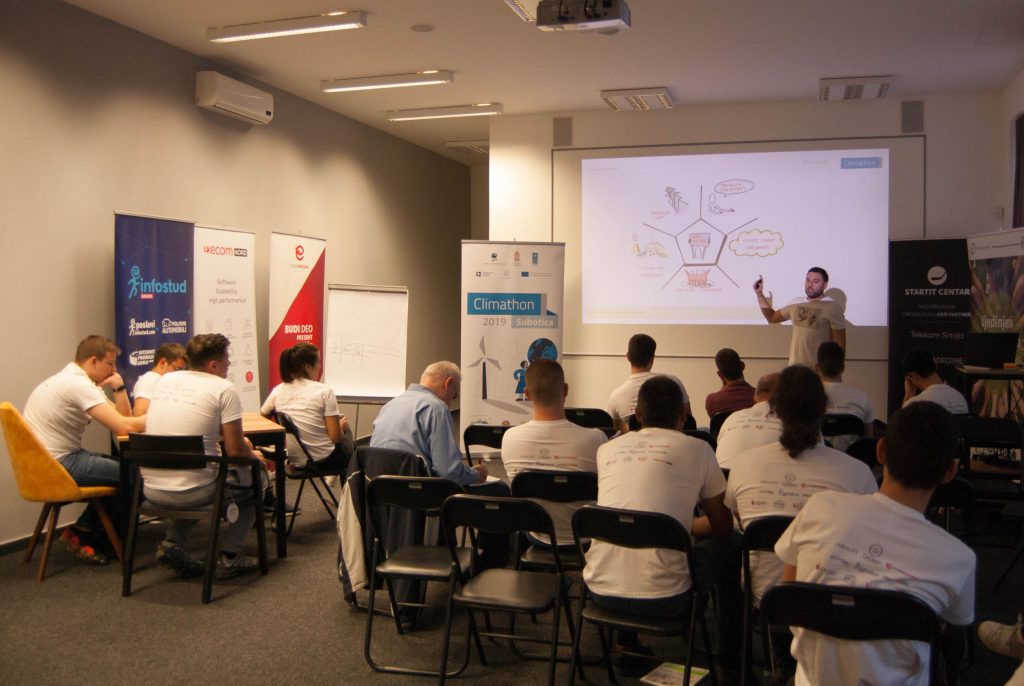
The “Gladiators” team won the second place, with a solution for two global challenges: massive logging and electronic waste. The idea is that device similar to a tablet, the “e-nout” would be rented to students at schools at a cost of around 1,000 dinars annually.
– This device would replace the notebooks because it could be written and read on, so that instead of printing books, publishers would simply transfer them to the device in a machine-readable format. Currently, one of the global problems is logging, with about 4.3 billion trees cut down annually for paper-making, and about 2,000 sheets of paper used daily in schools, and this would be an effective way to solve it – explained Stefan Bobić from “Gladiators” team.
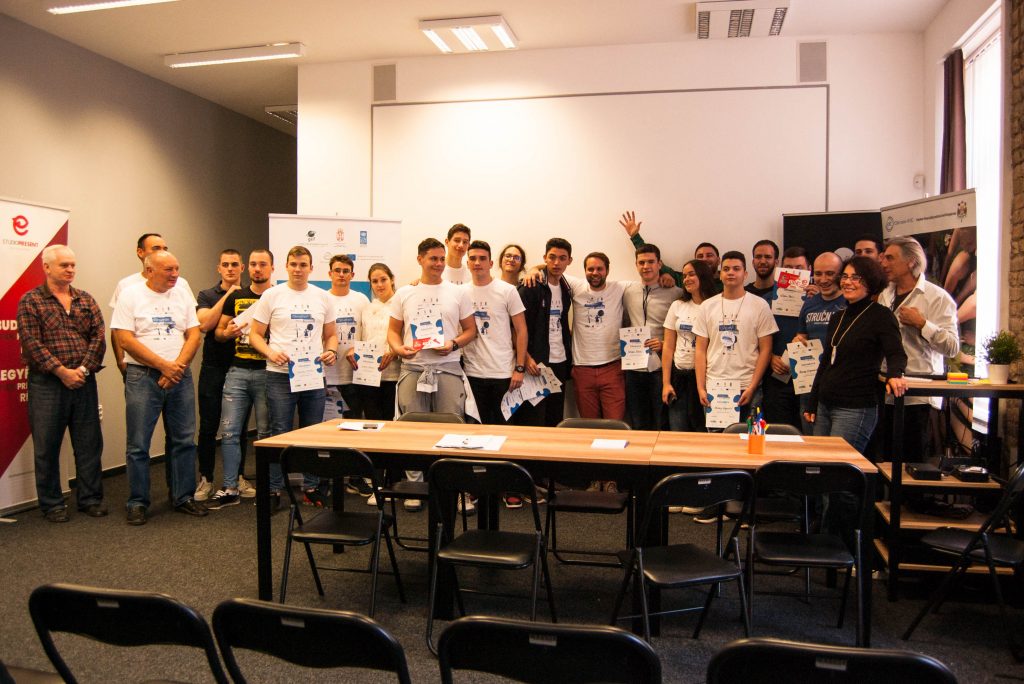
The invention of the team that won third prize is related to the recycling of electronic devices with a goal to improve the environmental awareness of citizens and environmental protection. The “Subo3ica” app enables users to gain information about where they can recycle their electronic devices, how to properly dispose electronic waste etc.
– It is an app that works on a local level, with various services available including routes of garbage trucks, placing ads for donation and reuse of appliances and similar information – said Stefan Popić, from the third-ranked team.
Other participants, though not awarded, also came up with interesting solutions and support for the realization of their ideas is in the planning. Realising their ideas would enable the reuse of glass in the production of souvenirs, the smart refrigerators that would notify users of the remaining food, while the recycled material would be used for the construction of roads.
Climathon in Čačak, themed “Green City”, was held in the Science and Technology Park. The challenge was to enrich and maintain existing green spaces in support of the fight against climate change. Question about how Čačak can be made a greener, more climate-resilient and a more pleasant city was answered by 28 participants in 7 teams.
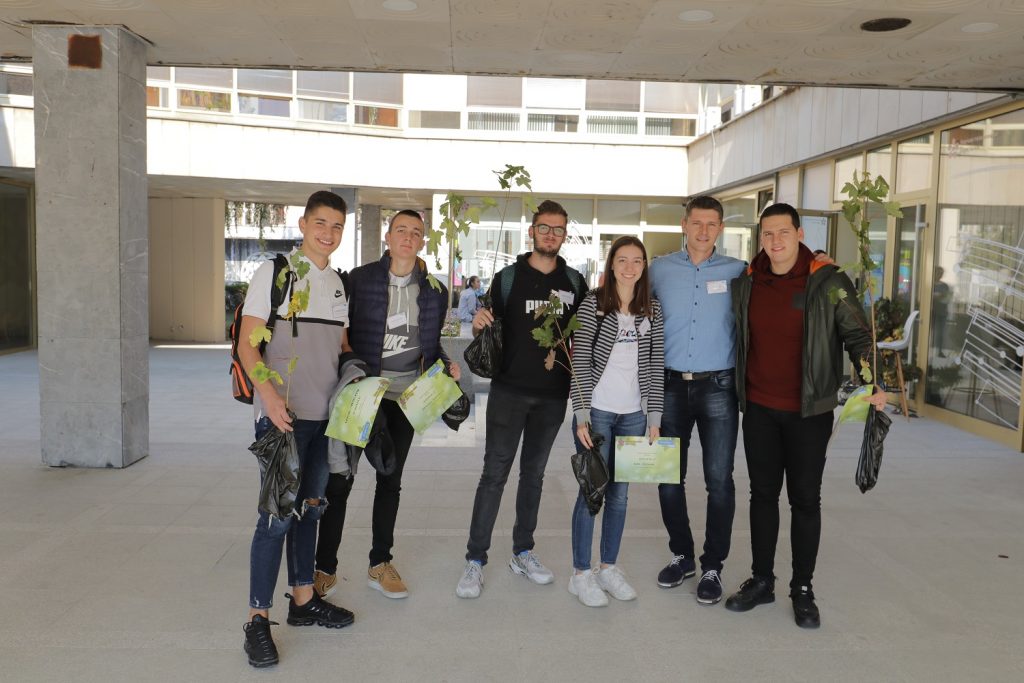
The “Čačak High School” team’s solution “Green Reading Room”won first place. Their idea is to green a part of the City Library roof and create a green reading room, a pleasant corner for the book-lovers. This new green space will improve the energy efficiency of the building and as reduce CO2 emissions and air temperatures in that part of Čačak.
The idea for the “Green Corner” – to arrange a plateau within the Cultural Center so that it fits the needs of the youth as a clean, green and healthy meeting place – by “Evergreen” team won the second place.
“Bambi” team won the third place with the “Green thread” solution, which proposes arranging terraces and neglected spaces between the House of Culture and City Hall, in order to make it greener and suitable for wedding ceremonies.
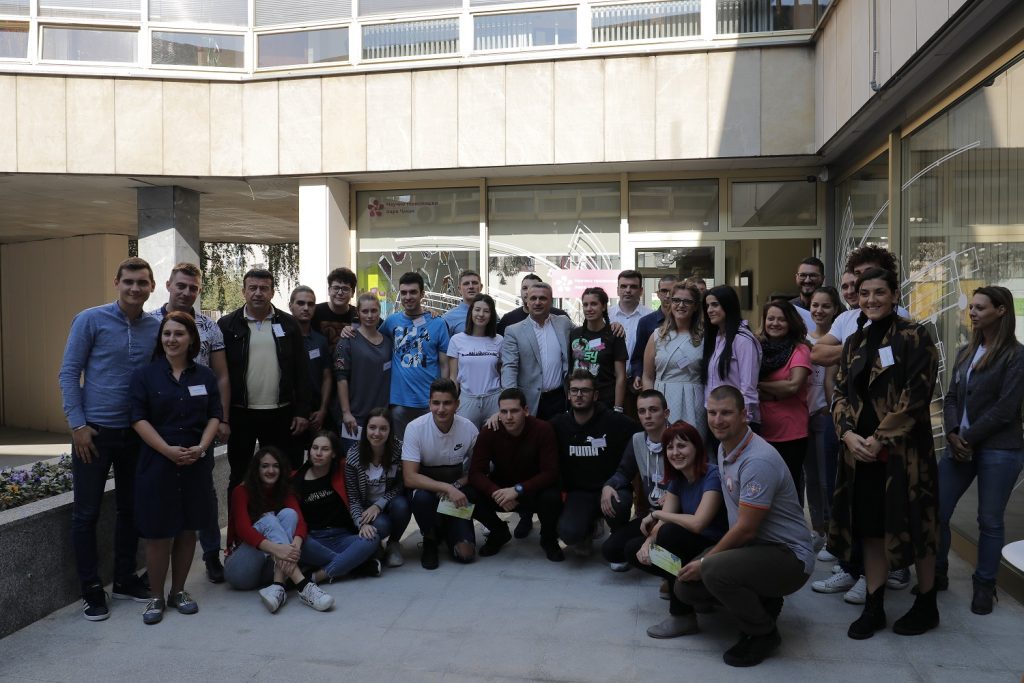
Other teams: “Energo town”, “ECoMETAr”, “Ecotopia” and “Green oasis” offered different solutions to make the city squares, streets and walls greener, and help the City of Čačak become more climate-resilient.
The Mayor of Čačak Milun Todorović announced the winners, and with the support of the State Enterprise for Forest Management “Srbijašume – the Čačak Forest Administration”, each participant received maple tree seedlings, with the obligation to plant the tree.
This year’s Climathon was also held in Belgrade, Novi Sad and Niš, as well as in more than 200 cities around the world.
Climathons in Čačak and Subotica were held within the project “Climate Smart Urban Development Challenge”, implemented by the Ministry of Environmental Protection and the United Nations Development Program (UNDP), with support of the Global Environment Facility (GEF) and in cooperation with Climate KIC Serbia.


